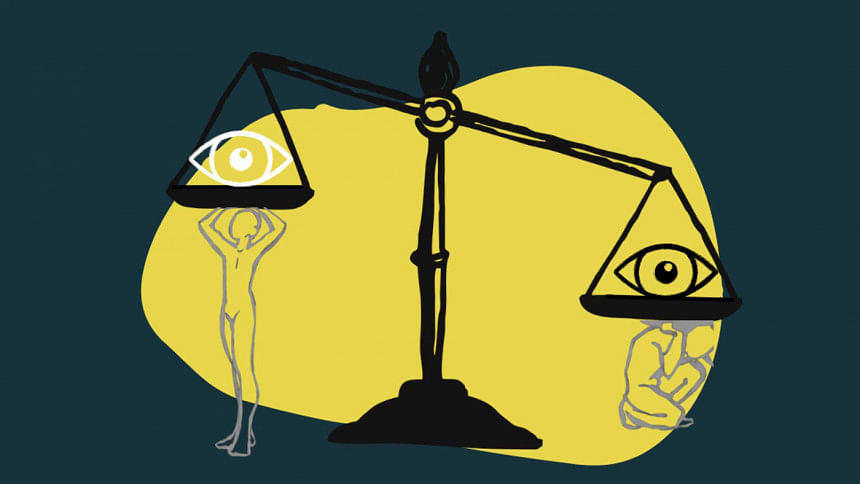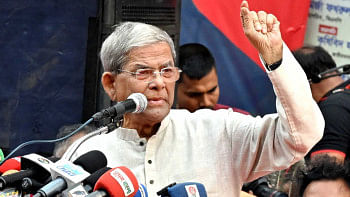On the other side of a stray bullet

Is a call for justice a glorified cry for revenge? Is justice noble, while revenge unworthy? A few years back, in an article published in The Chronicle of Higher Education, Professor Thane Rosenbaum forwarded revenge as a healthy, human and biological necessity. The Jewish scholar used the Old Testament's eye for an eye to underscore a proportionate delivery of justice to prevent disproportionate revenge such as recycling of feuds or blood feuds. Any moral injury ensues a debt, requiring payback.
The modern court system was created to stop this vicious cycle of revenge and justice. The state takes on the role of seeking revenge on behalf of those who are wronged. But what happens when the state fails to deliver what is due? Or delays it? Some recent instances made me reflect on the two sides of the revenge justice coin that I usually touch on while teaching Shakespeare's play Hamlet or Aeschylus' Orestian trilogy.
Last month, when the stray bullet of an assassin employed to kill a political leader hit a rickshaw passenger, the victim's father said that he would not seek justice. "What good would come out of filing a case?" the aggrieved father queried. His daughter, Prity, an HSC candidate from Begum Badrunnessa College, was all set to start a job to ease the family's financial burden. Their dream was shattered by a runaway bullet. Thus, a moral injury has been created, and we expect the state to pay it back. However, people like Prity's father exist at the bottom of the totem pole. Unless personal initiatives are taken or top-level priorities are given, the case will be lost in a legal quagmire. The victim's father, Jamaluddin, knows it all too well. And he, therefore, finds solace in seeking justice not here, but in the life hereafter.
On Thursday, a three-year-old girl was shot dead when miscreants targeted her father for intervening in a feud at Begumganj Upazila in Noakhali. Abu Jaher (38) took his daughter to a nearby store to buy some snacks when he saw a group of people abusing the shopkeeper. The gang shot at him as he tried to protest. While he himself lost an eye, Jaher's daughter died on the spot. A case has been filed and a member of the gang has been arrested. What guarantee is there that the perpetrators will not get bail and there will be no further violence to keep Jaher and his family from seeking ultimate justice? Do we think that a righteous man like Jaher will have the courage to protest or redress wrongs? Who will he turn to for redemption?
Conversely, last week we heard of the heart-warming account of a daughter's 16-year-long search for justice following the gruesome murder of her father. Shegufta Tabassum Ahmed was a first-year law student when her father, Geologist Professor S Taher Ahmed, was killed by a colleague. His body was dumped in a manhole to stop him from attending the selection board that was considering the promotion of the perpetrator. The case created a sensation back then as the murderer was nabbed. However, Shegufta's family saw in horror how the lower court released the culprit on bail. The family did not have the means to engage lawyers to fight for justice. The young law student, who was advised to become a corporate lawyer by her father earlier, took it upon herself to get into criminal law and seek justice. She doggedly pursued the case for the last 16 years and compromised her career growth in the process to finally get a verdict in her favour. The Appellate Division upheld the death sentences of the two accused and life sentences of the other two.
Shegufta is an exception. The same is true for our honourable Prime Minister. She had to win the people's mandate and fight an entire system to be at the helm of the country. She had to both respect the judicial system and remove the necessary stumbling blocks including the infamous Indemnity Act to ensure justice for her slain family members. Shegufta admits that outsiders do not often realise the procedural details that delay the judgements. The final verdict in the murder of Humayun Azad case, 18 years after the incident, too, speaks volumes of the justice lag that plagues the system. Shegufta was lucky to get the support of the Attorney General in finding justice. Where does it leave us, the ordinary people, who are not privy to the system?
We cannot expect Jaher or Jamaluddin to become lawyers or policymakers to ensure justice. We do not expect them to take the law into their own hands either. After Enlightenment, the state became the guardian as well as the "designated avenger" for all citizens. The state became the neutral, dispassionate, and impersonal agent to redress the crime committed against society. The moral debts, which Rosenbaum mentioned earlier, are settled by the state as a wrong done against it. In other words, if you kill someone, you violate state law. The legal system prosecutes a crime against the state, not against individuals.
The problem arises when the state fails to see the crime with the same priority or passion with which it was committed. Why does a rape survivor often kill herself after being violated? In most cases, the survivor knows that patriarchy will find more avenues to punish her further. Even if the criminal is punished, the punishment will not necessarily heal the mental and social damages done to her. By ending her life, she brings closure to her personal turmoil and offers a public statement of protest.
The feeling that there is no justice in this world can be dangerous. In one of his famous soliloquies, "To be or not to be," Hamlet pondered over the three options once he realised that his father was wrongfully murdered by the incumbent king. He could have simply internalised his grief, he could have taken arms against the system, or he could have killed himself. By presenting the dilemma of Hamlet, Shakespeare was exploring an alternative to the tribal blood bath—the scope for a judiciary system. Sadly, after all these years of the establishment of the legal system, victims or those who are wronged are posed with the same dilemma. It is about time, the state changes its state of affairs so that its members can have faith in a system that renders justice in this world.
Dr Shamsad Mortuza is the pro-vice-chancellor of the University of Liberal Arts Bangladesh (ULAB).

 For all latest news, follow The Daily Star's Google News channel.
For all latest news, follow The Daily Star's Google News channel. 



Comments